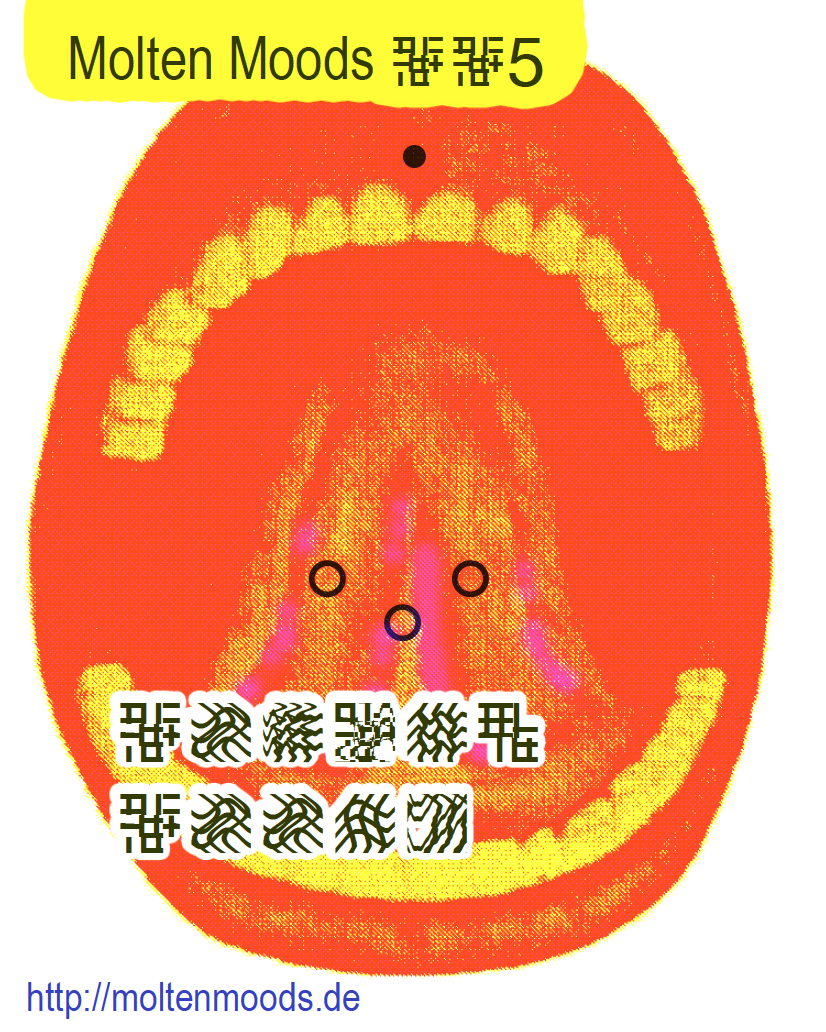Genres might have been developed over years and there have been and always will be people fighting for a clear distinction between the hip and the hop, but that’s not David Goldberg’s cup of tea. The Munich-based DJ, producer and sound designer who holds residencies at Rote Sonne in Munich and City Club in Augsburg is not familiar with musical borders. Instead of drawing lines Goldberg mixes whatever he wants to craft a unique blend of his own. His material has been spread via RFR Records, SVS and Molten Moods—record labels you may not know yet, but that are on the rise, and that showcase Munich’s diversity.
Goldberg’s “BaseElmnt64” is taken from his upcoming four track EP named EMO Serialism, out on Molten Moods on June 11. The track—just as the rest of the EP actually—deals with various themes and aesthetics: It’s an moody, haunting, feisty, C64-ping-pong-gaming-y, breaky, bassy bastard including easy going bits as well as proper dancefloor-moments.
Also Molten Moods, the label releasing the EP, shares this anything-goes mindset: Their past releases—a 12” by Jonas Friedlich and a series of compilations featuring tracks by Natan H, Skee Mask, Konrad Wehrmeister and the label head himself Jonas Yamer (of Carl Gari)—are proof of that.
Ahead of Goldberg’s release we are premiering A2 of the EP. Pre-listen below, while learning something about Goldberg’s artistic practice and more further down.
Kevin Goonewardena Next to your activities in music, you are working in fine arts, too. How are you approaching those two disciplines?
David Goldberg My approach concerning fine arts and music is similar—there is not really a difference. When I applied to study with Olaf Nicolai (professor for sculpting and basics of three-dimensional design at Munich’s Academy of Fine Arts) I was sure, that both sides of my practice can’t be separated. In general, I would describe my practice as following a certain method rather than being spontaneous. Usually I got a rough idea of where I want to go before I start working. However, the implementation of an idea itself then happens in a more intuitive way. Music and fine arts both include a spatial element for me, which automatically leads to an emphasis on that element in my work. To further explore the fusion of music and fine arts I will move back to Berlin soon to start a master degree in sound studies and sonic arts.
KG What about the production process—how are you working with your gear?
DG My production process isn’t set in stone, but I always work with pre-sets I do myself, as well as various tools I create with Max/MSP to optimize my workflow. It’s funny: I am quite a geek when it comes to Eurorack modular synths, but my tracks are nearly all produced in “the box.” The modular system seems to be only a source of inspiration as well as an instrument to jam with, more than it’s a source of sounds for arrangements.
KG It’s unusual for an artist to leave Berlin for another German city like you did…
DG As I mentioned, I came to Munich to study at the Academy of Fine Arts. Although the reason for moving to Munich were my studies, the experience here had a much bigger impact on my work than the years in Berlin prior to that. I can’t say why—maybe it is because Munich is close to the mountains and mountains are archaic and calming at once. [Laughs] To be serious, I think my friends over here played a major role—because we would be talking about music and art non-stop.
KG You hold two residencies. How do you organize those—in terms of selecting the music but also when it comes to the curation of guests?
DG At City Club I compile the whole program by myself. I try to invite partners-in-crime like Stenny (Ilian Tape), Jonas Friedlich (Molten Moods) or Candy Pollard (mobilat Club) to create a musical discourse. It doesn’t matter if drone, jungle or IDM is being played—everything goes. The City Club is like an experimental oasis where the people are easy-going and open minded—it’s the right place to figure things out. My other residency at Club Rote Sonne in Munich is more like a support-slot. But, in the last years the club did well—it experiences its second adolescence right now.
David Goldberg’s EMO Serialism will be published on Molten Moods on June 11, 2018. Grab a copy here.

